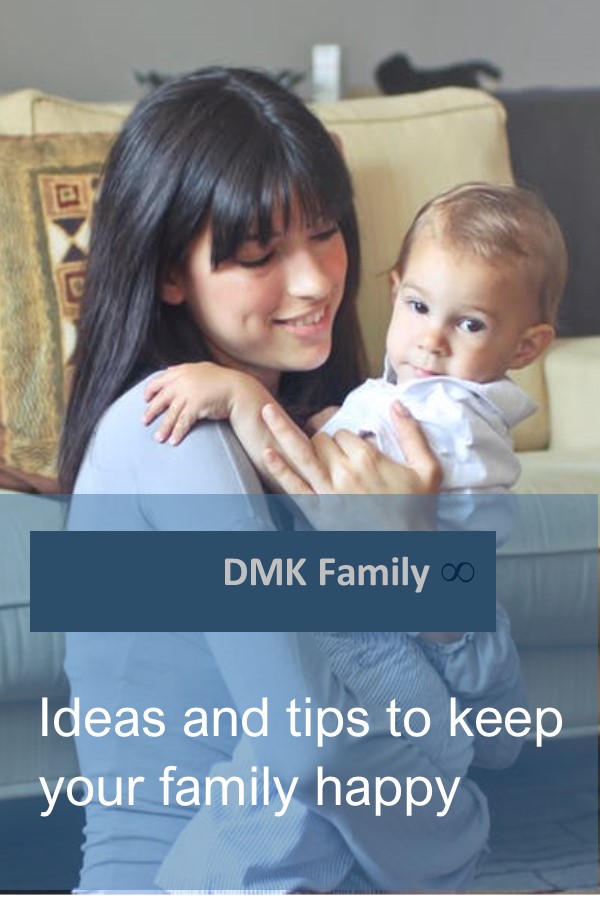There are some things to look forward to once your divorce is final and if you're like most of us, being alone isn't one of them.
Loneliness can be one of the most difficult emotions to overcome following divorce. While we know it's healthy to attain renewed independence following marriage, our feelings about being alone can be confusing. We may enjoy some quiet time following the many arguments, disagreements and marriage problems, but feel lonesome or even isolated once single life sets in.
Ironically, you're not alone. Regardless of reasons (e.g. divorce, relocation, social anxiety) it appears the majority of us feel the same way. According to a 2020 Cigna U.S. Report that includes a 2019 large national survey, 61% of survey participants reported being lonely, up from 54% in 2018.
Why is socializing important?
Social interaction develops our personality & conscience, cultivates our social skills and develops conflict resolution abilities. It's important to develop such skills at an early age in order to establish a strong social identity and a well adjusted perspective on relationships. In doing so, we're more likely to develop a strong self-esteem and confidence associated with social situations.
Friendships are one of the most effective ways to increase social interaction. We not only improve social functionality, but emotional and physical well being.
Harvard researchers found a relationship between strong social interaction and positive affects on brain health. Since cognitive abilities start to decline in our early 40's, it's imperative to employ methods that are known to improve cognitive function. Along with on-going learning and reading, researchers have found socializing is a primary method to combat cognitive decline.
However, it doesn't take a research study to know that time spent with friends provides an opportunity to talk, laugh and have fun. Maintaining your social fitness gives you a chance to participate in peer activities such as sports, book club or game night while bonding over commonalities & discussing current happenings.
This can help you cope with your own circumstances when learning about other's life situations and experiences. You also have the opportunity to share your own struggles in an effort to get advice or simply talk through your problems.
Friends who are bad for your health
It's great to have someone to vent to when times are difficult. However, you'll benefit more when your relationship is primarily positive instead of one that's wholly based on negative experiences and gossip.
Certain friends actually do more harm than good. They are considered "toxic friends" and they are, among other things, harmful to your social life, health and well-being.
While everyone goes through difficult times, if your friend never wants to spend anytime having fun, going out and forgetting about his/her problems for a few hours, he/she may just want a "gripe" buddy.
Too much venting about each other's problems actually feeds those problems and makes them a larger force in your life.
So, keep your venting to about 10 - 30% of your time spent with friends. The rest of time should be spent hanging out and having fun!
Keep your toxic friends at a distance if they are unwilling to let things go once in a while. You just ended a bad relationship. Don't get started with another one.
Too much social life
Don't let the tail wag the dog when it comes to staying social. If your social life is causing you more stress than it's helping, you may need to make some changes.
Limit your social engagements to those that are meaningful and don't be afraid to turn some engagements down with sincere regret like a hand written note or phone call. Texts are less personal, but still may be preferred, especially if the invitation was also sent in a text.
Good friends will understand your life situation and toxic friends “be warned”.
Kids or friends?
When it comes to kids or friends, you'll need to let some of your mommy or daddy guilt go once in a while. You know your kids will always have your attention and love more than a social life, but sometimes you just need a break.
It's perfectly okay to get out of the house to maintain your sanity and good nature. Your children will have a better parent for it and you'll feel recharged when spending time with your kiddos in days that follow.
Remember, when your primary identity is only "mommy" or "daddy" and your average conversation sounds more like baby babble then your adult voice, then you need to GET OUT! Get out of the house with some friends and live a little! And DON'T wear the macaroni necklace.![]()
I like being alone
It's important to maintain healthy relationships with friends and family. It's also important to cultivate new relationships, hobbies and healthy activities.
But, you know yourself better than anyone else. If you're someone who is happier on your own, then revel in it. You're finally free of your former spouse and have the opportunity to finally live your life as it should be lived.
Don't let others guilt you into social situations if that's not where you find your happiness. Yes, it's good to have social interaction. However, there are other means to maintain strong physical and mental health. Learning, reading, creating and physical fitness all improve your well-being and brain health.
Being on your own allows you to be in full control of what you do, eat, watch and improve. It's a liberating feeling to finally have no need to compromise with another person as you have while married.
Just know that after a period of time, you may begin to naturally feel the need for companionship. This need may present itself in ways that may not initially be obvious.
You may feel life is "grey". You may feel bored, hungry, lonely, lost or "just missing something" that provides the personal fulfillment you seek. Allow yourself to cultivate those feelings. It helps to maintain good communication skills needed for your career, everyday interactions with the public and family relationships.
Be willing to open your mind and heart to new friends or perhaps a romantic relationship. Most often, either may happen when you least expect it. After spending time on your own and really finding what makes you a happier, more successful person, you'll be in a better frame of mind to seek relationships with others who share similar goals.
This the time following divorce when many develop lifelong friendships and find true love because they've had some time to experience what they don't want, discover what they do!
I don't like to be alone, but I just never meet anyone
Following years of marriage and perhaps kids, work and home responsibilities, it's very common for your social life to have suffered to the point of near extinction. You may have forgotten how to introduce casual friendships into your life. It can seem awkward to suddenly start talking to individuals with whom you formerly never spoke.
- At work, introduce yourself to a co-worker and go to lunch together or just start a conversation about a mutual situation. Be the person who starts a Friday Happy Hour. Get some friends from work to meet at a local restaurant for a drink and appetizers. This is a great team-building event and improves your social standing at work. You'll be the person co-workers look to as the "in the know" after hours, party planner.
- Don't be afraid to go out alone! It's totally normal to have a drink and dinner at a local bar/restaurant. It doesn't mean you want to meet someone; you just need to stay socially active. Don't spend the entire time on your phone while there. Be social by chatting with the bartender or others around you.
- Get a fun part-time job on the basis of meeting new people, primary and extra income, secondary. Sometimes our current career provides limited social interaction. A part-time gig may not only provide you an opportunity to meet others, but will generally improve your communication skills for other social events and bring in some extra cash!
- Train for a marathon or sporting event in your city. It'll improve your well-being and provide a great venue to meet others.
- Volunteer! It's a great way to meet like-minded people who care about helping others and/or a local cause.
- Take a continuing education class on a topic that interests you. You could also attend dance classes, music lessons or physical fitness classes. Self improvement increases your self-esteem and these classes are a great place to meet someone with similar interests.
- Join Meetup® (an online social networking site that provides a source to find local events and groups in your area specific to your interests or hobbies).
- Reach out to old friends on social networking sites. Just stay away from old "non-friends" - don't just reach out to someone because you knew them or of them in years past. Reach out because they have current, similar interests or life focus. Also, don't contact those with whom you ended things for good reasons. People do change, but sometimes friends who were toxic in your life are better left out of it. You don't need more problems or "toxic relationships". Your goal is to find a few great friends, not a thousand bad ones. So, if you're new to social networking, don't make your debut about the number of old friends you can contact or for which you accept friend requests.
Once you meet a few people with similar interests, stay in contact with them and continue to increase your social circle. Go to concerts, movies in the park, attend events. Just get out there and be around people.
Do you have Social Anxiety Disorder?
Some individuals who suffer from Social Anxiety Disorder (SAD) or have had limited social stimulus for a variety of reasons may have difficulty in maintaining lasting relationships, holding down a job, completing projects or attaining education that would help with certain life successes.
It's important to recognize the signs of this disorder to determine if you need medication, professional guidance or therapy. It's often diagnosed long after the disorder has negatively impacted one's life. If you think this disorder affects you, discuss various treatment options with a family physician or psychiatrist. For more information regarding SAD, read our 2019 DMK article, How to Cope with Social Anxiety.



 How to resolve AdBlock issue?
How to resolve AdBlock issue?